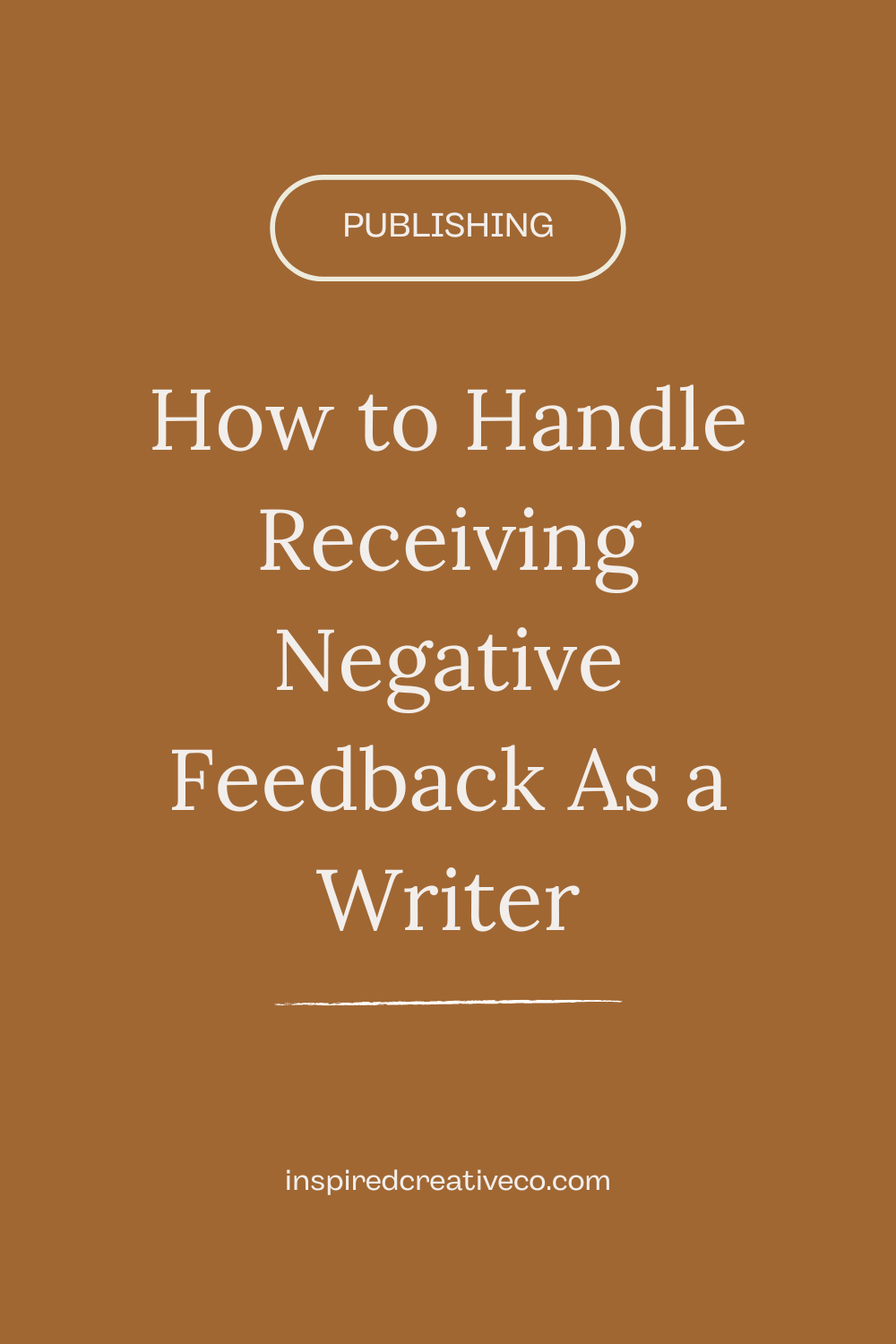How to Handle Receiving Negative Feedback As a Writer
It takes a lot of courage for writers to share their work and put themselves out there.
Have you ever shared your book with someone and felt absolutely destroyed by their feedback? I have. And it sucks.
The first time this occurred back in 2018, I gave up writing for almost a year and felt like I was never going to be good enough as both a writer or an editor. Thankfully, I didn’t let that voice win.
So how can writers learn to handle negative feedback and criticism? Here are my top 4 tips!
#1 Take a breather
Receiving harsh or unhelpful feedback sucks. It’s a huge blow to any writers self-esteem.
I’ve experienced this myself both as a new and established writer. While it’s easier to handle with time and experience, it still hurts.
First thing's first, take a deep breath. And then maybe another one. Before you do anything, give yourself a moment to gather your thoughts and reflect. Perhaps pausing and thinking through the feedback will help you see it differently. If nothing else, it will at least allow you the time and space to deal with it more carefully.
#2 Talk to someone trusted
After reading hurtful words about your book, talk to someone trusted. This could be your writing friends, your family, or your writing coach.
Sharing your experience can allow you to gain some perspective and get insight from others. There is a chance could have misinterpreted the feedback, or that you could even come to look at it from a different angle. Sometimes having another’s input can help us see something we missed, so it’s important to include others and get trusted advice.
#3 Make it known
By this I don’t mean get on social media and slam the person who dissed your writing. I mean talk to that person 1:1. Most editors and coaches offer some kind of 1:1 follow-up call, so use that time to explore how you feel. Let the person know that you were surprised by their comments and give them a chance to explain. Maybe they didn’t mean it to sound as harsh as it did. Maybe they didn’t know it would hurt your feelings. Or maybe they simply didn’t understand what you were trying to convey and misinterpreted your work. Whatever the case, it’s important that you raise the topic with them so it can be fully resolved. Ensure that you’re open to hearing what they have to say to avoid any additional or unwanted conflict.
If the person you received feedback from didn’t share any positive thoughts with you, this could also be your opportunity to ask. Ask them what they liked or thought worked well. Tell them that it would be helpful to know — because it is! If they’re a well-intentioned person, they should be able to share something positive with you.
#4 Accept subjectivity
At the end of the day, it’s important to remind yourself that your writing is subjective. If the negative feedback is something like “I didn’t connect with the writing style” then maybe that’s a them problem. However, if the feedback is “your story lacks structure and coherent pacing” maaaaybe that’s something to take into account — however harsh it might have been. Not all the feedback will be applicable, so make sure you’re taking the pieces that resonate and will truly help you improve your writing.
While it can be disappointing to have to accept, it’s important to recognise that the stories we write will not be for everyone and we will encounter people with differing opinions from our own.
Do some reflection work
If you’re feeling bothered by the feedback, here are some journalling prompts that might help you explore how you feel.
What is the feedback that bothers me?
Why does it bother me?
Is this just their opinion, or is there evidence/something to support this?
Is this person an authority in the field? (ie: are they a book editor with years of experience and knowledge?)
Why do I not agree with this feedback?
What have other people said on the matter? (eg: did other beta readers agree with the feedback or did the people you told agree with you? What is the overall consensus?)
Is there another opinion I could get that would help me settle this?
How can I approach the editor/reader/coach about their feedback to resolve this without conflict?
If you’re looking for empathetic editing that focuses on providing actionable and educational feedback, my 8-Week Coaching & Critique could be just what you need. Through focused weekly 1:1 calls, we can deep dive into your story and work through the revisions together.


